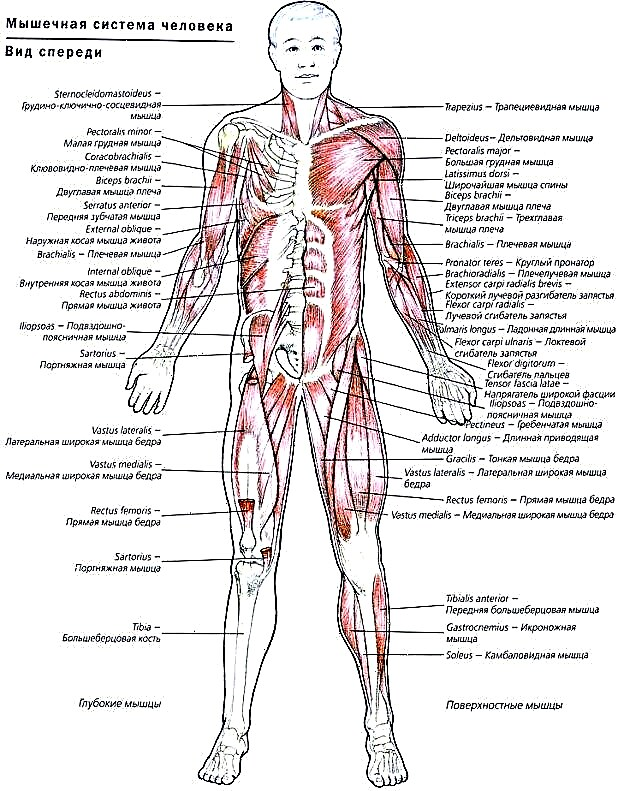Franz Schubert (1797 - 1928) can be considered one of the most tragic figures in world culture. The composer's brilliant talent was, in fact, appreciated during his lifetime only by a rather narrow circle of friends. Schubert since childhood did not know what the minimum household comfort is. Even when he had money, his friends had to keep track of Franz's spending - he simply did not know the price of many things.

Fate measured Schubert in just an incomplete 31 years of life, while for the last nine years he was seriously ill. At the same time, the composer managed to enrich the world musical treasury with hundreds of brilliant works. Schubert became the first romantic composer. This is surprising, if only because he lived at the same time as Beethoven (Schubert died a year and a half later than the classic and carried his coffin at the funeral). That is, in those years, heroism in front of contemporaries gave way to romanticism.
Schubert, of course, did not think in such terms. And it is unlikely that he was engaged in philosophical reflections at all - he worked. In any housing and material conditions, he constantly wrote music. Lying in the hospital, he creates a wonderful vocal cycle. After parting with his first love, he writes the Fourth Symphony, called "Tragic". And so all his life until the moment when on a chilly November day his coffin was lowered into the grave not far from the still fresh grave of Ludwig van Beethoven.
1. Franz Schubert was the 12th child in the family. His father, who was also named Franz, even kept a special book so as not to get confused in his own children. And Franz, born on January 31, 1797, was not the last - two more children were born after him. Only four survived, which was a depressing tradition for the Schubert family - four out of nine children survived in the grandfather's family.

One of the streets of Vienna at the end of the 18th century
2. Franz's father was a schoolteacher who had studied for a prestigious (school reform in Austria) profession from ordinary peasants. Mother was a simple cook, but about marriage they would now be told “on arrival”. Maria Elisabeth became pregnant, and to the credit of Franz Schubert Sr., he did not abandon her.
3. Schubert Sr. was a very harsh man. The only relief he made for the children was for music. He himself knew how to play the violin, but preferred the cello, and taught children to play the violin. However, there was also a practical reason in teaching music - the father wanted his sons to become teachers, and in those days, teachers were supposed to teach music.
4. Franz Jr. began violin studies at the age of seven and made great strides. The elder brother knew how to play the piano. After numerous requests, he began to teach Franz, and after a few months he was surprised to realize that he was no longer needed as a teacher. There was an organ in the local church, and one day everyone began to wonder at Franz's sudden piety. He even began to sing in the church choir. In fact, the boy stuck out in the church only to listen to the organ, and sang in the choir so as not to pay for the lessons given to him by the choir leader Michael Holzer. He had an outstanding pedagogical talent - not only taught the boy to play the organ, but also laid a fair theoretical basis. At the same time, Holzer was very modest - later he even denied that he gave Schubert lessons. These, Holzer said, were just conversations with music. Schubert dedicated one of his masses to him.
5. On September 30, 1808, Franz successfully passed the exams, became a court choir and was enrolled in the convict, a prestigious religious educational institution.

In convict
6. In convict Schubert first joined the orchestra, then became its first violin, and then the deputy conductor of Vaclav Ruzicka. The conductor tried to study with the boy, but quickly realized that his knowledge for Schubert was a passed stage. Ruzicka turned to the very same Antonio Salieri. This composer and musician was the conductor of the Viennese court. He took exams with Schubert and remembered the boy, so he agreed to work with him. Upon learning that his son was seriously engaged in music, his father, who could not tolerate the slightest disobedience, kicked Franz out of the house. The young man returned to the family only after the death of his mother.

Antonio Salieri
7. Schubert began composing music in the convict, but he played it very few people. Salieri approved of the study of composition, but constantly forced the student to study the masterpieces of the past, so that Schubert's works corresponded to the canons. Schubert wrote completely different music.
8. In 1813 Schubert left the convict. Penniless, he entered adulthood with only a heap of his own writings. His main treasure was the symphony he had just written. However, it was impossible to make money on it, and Schubert became a teacher with a salary that could not even buy a pound of bread a day. But in three years of work, he wrote hundreds of works, including two symphonies, four operas and two masses. He especially liked to compose songs - they came out from under his pen in dozens.
9. Schubert's first love was called Teresa Coffin. The young people loved each other and intended to get married. The girl's mother, who did not want to marry her daughter to a man without a penny, interfered. Teresa married a pastry chef and lived for 78 years - 2.5 times longer than Schubert.
10. In 1818, the situation in the house became unbearable for Franz - his father became completely obsessed with money by old age and demanded that his son give up music and take up the career of a teacher. Franz, in response, dropped out of school, fortunately, the place of a music teacher turned up. Count Karl Esterhazy von Talant hired him under the patronage of Schubert's friends. The Count's two daughters had to teach. The fact that the star of the Vienna Opera, Johann Michael Vogl, had already appreciated Schubert's songs, helped to get a place.
11. Songs of Schubert were already sung throughout Austria, and their author did not know about it. Accidentally arriving in the city of Steyr, Schubert and Vogl discovered that Franz's songs were sung by both young and old, and their performers were in awe of the metropolitan author. And this despite the fact that Schubert did not manage to attach a single song to the concert singers - this could become a source of at least some income. Only here Vogl, who had previously sung Schubert's songs only at home, appreciated how popular the works of this composer could be. The singer decided to "punch" them into the theater.
12. The first two works, "Gemini" and "The Magic Harp", failed due to weak librettos. According to the then rules, a little-known author could not present his own libretto or a libretto written by someone - the theater ordered it from venerable authors. With the theater, Schubert did not succeed until the end of his life.
13. Success came from a completely unexpected side. At one of the most popular “academies” in Vienna - a mixed hodgepodge concert - Vogl sang the song “The Forest Tsar”, which had a phenomenal success. The publishers still did not want to contact the little-known composer, and Schubert's friends jointly ordered the circulation at their own expense. The case unfolded very quickly: having published only 10 Schubert songs in this way, the friends paid all his debts and handed the composer a hefty sum. They immediately discovered that Franz needed some kind of financial manager - he never had money, and he simply did not know how and on what to spend it.
14. Schubert's Seventh Symphony is called “Unfinished” not because the author did not manage to finish it. Schubert just thought he had expressed everything he wanted in it. However, it consists of two parts, while in a symphony there should be four of them, so the specialists have a feeling of incompleteness. The symphony's notes have been gathering dust on the shelves for over 40 years. The work was first performed only in 1865.
15. With the fame of Schubert in Vienna, "Schubertiada" - evenings at which young people had fun in every possible way, became fashionable. They read poetry, played games, etc. But the crowning event was always Schubert at the piano. He composed music for dances on the go, and there are more than 450 recorded dances in his creative heritage alone. But the composer's friends believed that Schubert composed much more dance tunes.

Schubertiad
16. In December 1822, Schubert contracted syphilis. The composer wasted no time even in the hospital - there he wrote a wonderful vocal cycle “The Beautiful Miller Woman”. However, with the then level of development of medicine, the treatment of syphilis was long, painful and greatly weakened the body. Schubert had periods of remission, he began to reappear in society, but his health never recovered.
17. On March 26, 1828 Vienna witnessed the real triumph of Franz Schubert. A concert was organized from his works, which were performed by the best Austrian musicians. Those present at the concert recalled that the delight of the audience grew with each number. And at the end of the announced program, after the performance of the trio in E flat major, the walls of the hall almost collapsed - it was customary for the Viennese to express the highest pleasure from music by stomping. The musicians were called for an encore even when the gas lighting was turned off in the hall. Schubert was overwhelmed by the success. And he had only a few months to live ...
18. Franz Schubert died on November 19, 1828 at his home in Vienna. The cause of death was typhoid fever. He spent the last days of his life in a feverish delirium. Most likely, these 20 days were the only ones in the composer's mature life in which he did not work. Until his last days, Schubert worked on his wonderful works.
19. Schubert was buried in the Wehring cemetery not far from Beethoven's grave. Subsequently, the remains of two great composers were reburied at the Central Cemetery.

Graves of Beethoven and Schubert
20. Schubert wrote over 1,200 works in a wide variety of genres. And during her lifetime, only a small part of what was written by the composer saw the light. The rest gradually gathered around the world: something was found by the heirs of friends, something emerged when moving or selling real estate. The complete works were published only in 1897.









